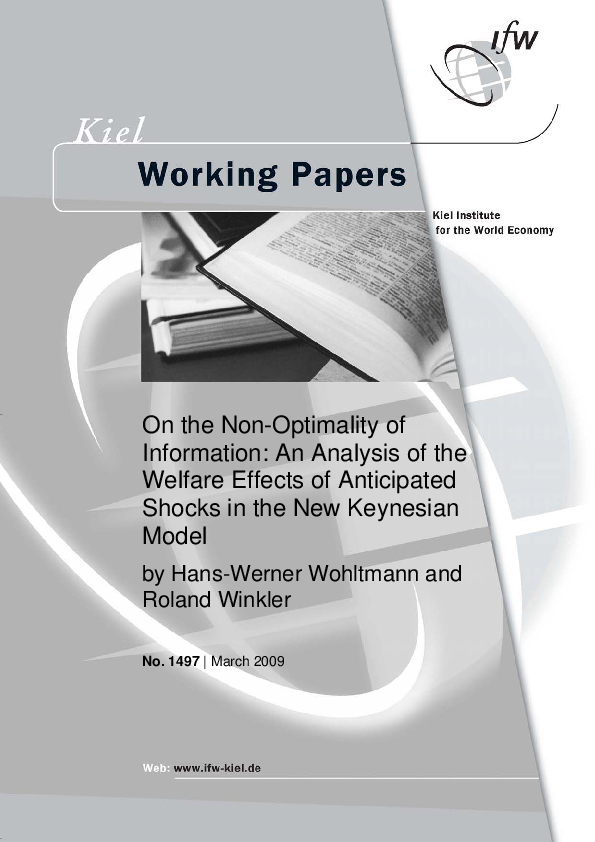Working Paper
On the Non-Optimality of Information: An Analysis of the Welfare Effects of Anticipated Shocks in the New Keynesian Model
Kiel Working Papers, 1497
Authors
Publication Date
JEL Classification
E31
E32
E52
Key Words
This paper compares the welfare effects of anticipated and unanticipated cost-push
shocks within the canonical New Keynesian model with optimal monetary policy. We
find that, for empirically plausible degrees of nominal rigidity, the anticipation of a
future cost-push shock leads to a higher welfare loss than an unanticipated shock.
A welfare gain from the anticipation of a future cost shock may only occur if prices
are sufficiently flexible. We show analytically that this result holds although unanticipated
shocks lead to higher negative impact effects on welfare than anticipated shocks.






